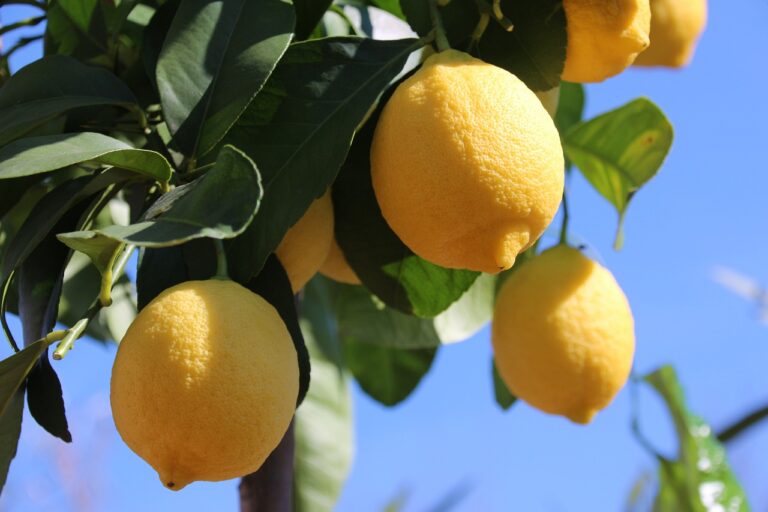Do Lemon Trees Attract Bees?
Yes, lemon trees do attract bees. The vibrant blossoms of lemon trees produce sweet-scented nectar, drawing bees in search of a rich food source. With an extended blooming season, lemon trees provide a consistent supply of nectar and pollen, making them attractive hubs for bees.
Bees are essential pollinators, contributing to the reproduction of various plants, including fruit-bearing trees. In this article, we will explore the relationship between lemon trees and bees, examining the factors that make lemon trees appealing to these buzzing pollinators.
1. Floral Nectar and Fragrance
Lemon Blossoms as Bee Magnets
Lemon trees produce beautiful and fragrant blossoms that emit a sweet aroma, attracting bees in search of nectar. The high sugar content in the nectar serves as a valuable food source for bees. These blossoms are a key reason why lemon trees often find themselves surrounded by a busy bee population during the flowering season. The symbiotic relationship between lemon trees and bees is a testament to the role each plays in sustaining the other.
2. Abundance of Pollen
Lemon Trees as Pollen Stations
Bees need pollen for protein and other essential nutrients. Lemon trees, being prolific producers of pollen, become attractive hubs for bees seeking nourishment. As bees collect pollen from the lemon blossoms, they inadvertently facilitate the pollination process, transferring pollen from one flower to another. This pollination is crucial for the reproduction of lemon trees and the development of their fruits.
3. Blooming Season Duration
Extended Blossoming Period
Lemon trees often have a more extended blooming season compared to some other fruit trees. The prolonged availability of blossoms provides bees with a consistent and reliable food source. Bees are more likely to establish and maintain colonies near lemon groves due to the consistent nourishment provided throughout the extended blooming period. This extended relationship benefits both the lemon trees and the bees.
4. Bright Colors of Lemon Blossoms
Visual Attraction for Bees
Bees are highly attracted to bright colors, especially shades of white and yellow. Lemon blossoms, with their prominent yellow hue, act as visual beacons for bees, signaling the presence of a rewarding nectar source. The vivid colors not only guide bees to the blossoms but also enhance the efficiency of the pollination process, as bees can easily spot and navigate towards these vibrant flowers.
5. Rich Nectar Rewards
Nutrient-Rich Nectar Source
Lemon trees produce nectar with a high concentration of sugars, providing bees with a nutrient-rich food source. The reward of abundant and energy-packed nectar serves as an incentive for bees to visit lemon blossoms regularly. In return for this nourishment, bees inadvertently aid lemon trees in their reproductive cycle by transferring pollen between flowers.
6. Lemon Tree Size and Structure
Bee-Friendly Tree Architecture
The size and structure of lemon trees contribute to their attractiveness to bees. Lemon trees often have open and accessible flowers, making it easy for bees to land and collect nectar and pollen. The architecture of the lemon tree promotes efficient pollination, as bees can navigate the tree with ease, ensuring that each blossom has the opportunity to contribute to fruit development.
7. Seasonal Availability of Nectar
Consistent Nectar Supply
Lemon trees tend to produce nectar consistently throughout their blooming season. This consistent availability of nectar aligns with the foraging habits of bees, which require a stable and reliable food source. The seasonal synergy between lemon trees and bees fosters a sustainable relationship that benefits both parties involved.
8. Climate and Environmental Factors
Ideal Conditions for Bees
Lemon trees thrive in climates that are also favorable for bee activity. Bees are more likely to be attracted to lemon trees in regions where the temperature and environmental conditions align with their preferences. The interdependence between lemon trees and bees creates a harmonious ecosystem, where both entities flourish in environments that cater to their specific needs.
Conclusion
In conclusion, the connection between lemon trees and bees is a testament to the intricate web of relationships that exists in nature. The mutual benefits derived from this association underscore the importance of preserving and nurturing such ecosystems. As gardeners and environmental stewards, understanding the factors that attract bees to lemon trees empowers us to contribute to the well-being of both these vital pollinators and the lemon trees that grace our gardens.


